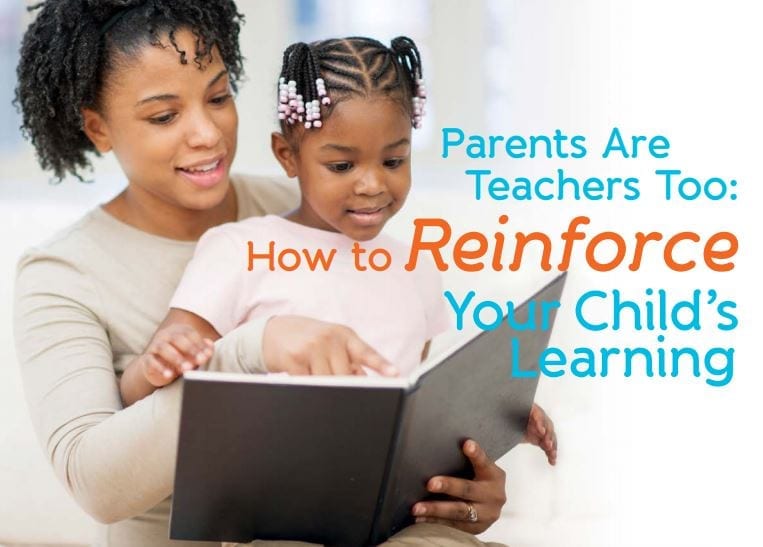Parents are children’s first role models. Parents can teach their children not only by what they say, but also by what they do.
READ BY EXAMPLE
Read with your children, encourage them to read books on their own, and let them see you reading your own books. The joy of reading developed early on can become a lifelong habit. If your children see you reading, there is a good chance they will follow your lead and sit down with a book themselves. Set aside time to talk with them about what each of you is reading. If you’ve been reading aloud to your children regularly, by the time they’re of school age, they’ll probably want to read aloud to you, too!
SET ASIDE TIME TO TALK ABOUT YOUR DAY
Find time to share your day with your children. For example, ask your children what they did at school and tell them about what you did at work. Even when you are
very busy, try to find a time and place to talk each evening. Talking gives your children the chance to repeat what they learned that day. This “re-teaching” helps them store their new knowledge and skills.
ENCOURAGE ART AND WRITING
It is great for children to write, draw, or do both without any educational purpose in mind other than to express themselves. At home, you can encourage your children to write and illustrate original stories, cards, letters, and invitations to friends and family. Keep paper, pencils, crayons, markers, and tape in a place your children can access easily. Research has shown that writing improves a child’s reading skills, and reading can improve writing skills.
PLAN ONE-ON-ONE TIME
Plan some activities that you can do with your child, such as coloring, playing a game of catch, and cooking together. Try to limit distractions, interruptions, and smartphone and media use during this special time. Make the time about you and your child being together. Listen and be attentive. Some children say they wish
they could call their parents on a smartphone, because it seems like the best way to get their parents’ attention.
GET ACTIVE TOGETHER
Schedule some weekend or after-school physical activities that are appropriate for the whole family. Swimming, tennis, bicycle riding, and skiing are some of the sports that children can continue doing as adults. Do not overlook walking as a perfect way for the family to enjoy physical activity together. Studies now show that
children who are active for at least 1 hour a day are healthier, they sleep better, and they focus better in school.
MAKE HEALTHY FOOD CHOICES AND EAT WELL TOGETHER
Even though school meals are becoming healthier and your children are learning about nutrition at school, they will be influenced more by the meals on your dinner table and by watching your own food selections. At home, you can reinforce nutrition education and help your children learn how to make healthy meals. They can also learn important life skills from you, such as how to read recipes and measure ingredients.
GET INVOLVED IN YOUR COMMUNITY
• Find community activities that are pure fun. Despite their recreational nature, these activities can still be viewed as providing support and practice for what is being
taught in school. Community activities will broaden your children’s experiences and social network and give them something new to learn, think about, and write about.
• Take your children to your local library and get each of them a library card. Because children use the library at school, most children will feel comfortable when they
go to the local library. Ask the librarian to suggest interesting and informative age appropriate books for each child. Also pick up a few of your own childhood favorites to read together with your child. Many libraries also offer reading and learning activities, including arts and crafts.

